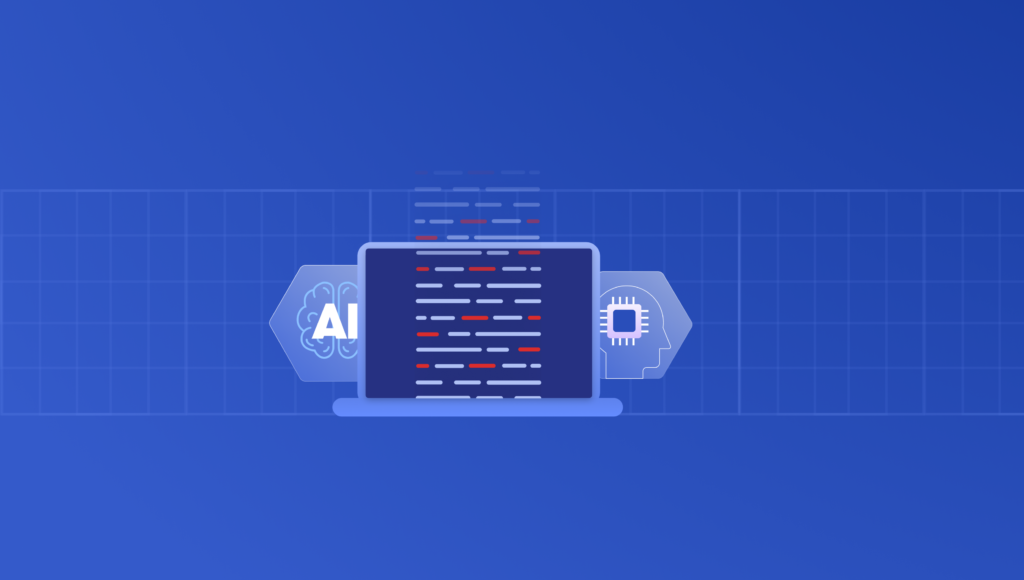In the fast-paced digital age, app modernization is a way to achieve transformation in ready-made services, which involve the existing apps transformation and updates to meet the latest user demands and industry standards. Machine learning and artificial intelligence remain at the forefront of app modernization. They are beneficial to the business by streamlining the work. It increases the user experience and improves the app’s security measures.
Machine learning and artificial intelligence are interrelated technologies that allow computers to analyze, learn, and make decisions depending on the data without explicit programming. Machine learning and artificial intelligence algorithms make the right use of statistical models that recognize the patterns in the data, thereby making predictions, optimizations, and classifications.
As you go through this write-up, you can seek information about the impact of machine learning and artificial intelligence on cloud application modernization:
Computer vision for object and image recognition
Computer vision is recognized as a study field that allows computers to understand and interpret the videos and images they capture. Object and image recognition are recognized as the common application of computer vision, in which the computers are trained to recognize and classify the objects in the objects. Such technology has a wider range of different apps that help recognize people in the security footage and identify products in the warehouse.
The deep neural networks and advances in machine learning bring improvements in the system’s accuracy. Thus, it becomes an enhanced and valuable tool in various industries. As computer vision develops, it is equipped with the capabilities to revolutionize the way people understand and interact with the visual world.
Natural language processing for voice assistants and chatbots
NLP, or natural language processing, has an integral role in the latest advancements of voice assistants and chatbots in cloud application modernization. Voice assistants and chatbots depend on AI technology, which is useful in processing human language to offer helpful and accurate responses. By choosing natural language processing, the AI-based systems will understand the natural language, such as colloquialisms and idioms, and respond in an appropriate manner.
NLP allows voice assistants and chatbots to be more user-friendly and intuitive. Thus, it helps create a better user experience. Once the technology develops continuously, you can expect a conversational and personalized interaction with voice assistants and chatbots in the near future.
Anomaly detection for fraud detection
Machine learning and artificial intelligence transform the ways in which frauds and anomalies are diagnosed in the digital world. As governments, financial institutes, and businesses produce and process data, regular fraud detection methodologies are not enough. Machine learning and artificial intelligence provide a suitable choice for business enterprises to create intelligence systems from the data, recognize patterns, and identify potential anomalies.
Choosing machine algorithms is notable in this aspect, as they analyze the massive learning and datasets from the previous fragmented activities and recognize suspicious transactions faster. As machine learning and artificial intelligence capabilities evolve, anomaly detection, fraud precision, speed, and accuracy are going to be more effective. It enhances financial and operational business efficiencies, thereby decreasing security risks.
Sentiment analysis for social media monitoring
Sentimental analysis is necessary to track social media platforms. It is useful in gauging opinions, moods, and user reactions towards a specific brand and topic. It is recognized as a valuable tool that is used by businesses to understand customer needs related to their services and products. After combining it with different advanced analytical tools, you can use it to recognize insights and patterns to make strategic decisions.
Sentiment analysis is useful for marketers and businesses to monitor brand reputation. It is also beneficial in predicting customer needs. Sentiment analysis offers actionable insights to businesses, thereby improving customer satisfaction and engagement.
Automate app maintenance.
It can be challenging to keep up with application management and application maintenance. Machine learning and application learning are notable in this aspect as they help automate application management and maintenance efficiently. It helps automate different routine maintenance tasks.
It decreases the risks of human errors, thereby saving ample time. Machine learning and artificial intelligence algorithms recognize the need for businesses to adopt proactive action, thereby preventing expensive downtime.
Enhanced user experience
The downtime has a significant effect on businesses, thereby resulting in loss of revenue, brand damage, and reduced productivity. By combining machine learning and artificial intelligence, businesses offering cloud modernization services will be capable of decreasing downtime, thereby boosting application availability.
Choosing machine learning and artificial intelligence algorithms provides the ideal opportunity for businesses to recognize bottlenecks and performance problems in real-time, enabling immediate retention. The businesses will be capable of maintaining customer satisfaction and decreasing downtime.
Streamlined processes and workflows
Machine learning and artificial intelligence help in the app modernization process to automate repetitive tasks like data analysis and data entry. Thus, it will free up resources and time for the developers so that they can concentrate on the complicated tasks. It results in quicker development cycles and boosts improved productivity.
Improved accessibility and usability
The combination of machine learning and artificial intelligence is useful to businesses in improving application usability and accessibility. Such technologies help analyze the accessibility, language, and user behavior requirements to assure that the application is becoming user-friendly. The businesses improve usability and accessibility and help reach a wider audience.
Before implementing machine learning and artificial intelligence technologies in the app modernization process, you need to create a clear plan and strategy. Such a plan speaks about the objectives and goals of adopting the technology. The integration of machine learning and artificial intelligence technologies and app modernization is useful to businesses in beating their competitive edge.
Thus, businesses can improve the application user experience, boost security measures, and streamline workflows. It is important that businesses keep up with the faster landscape of app modernization for Application Modernization to create efficient and robust applications to meet changing customer needs.

